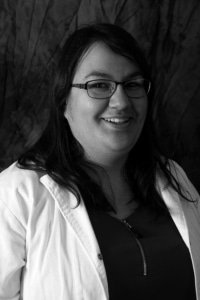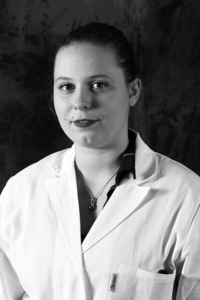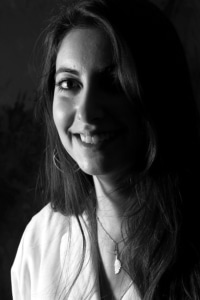Tuesday, 11 February, is the International Day of Women and Girls in Science. This event was created by the United Nations General Assembly in order to promote full and equal access to participation in science for women and girls. It is for remembering that women and girls play an essential role in the scientific and technological community and that their participation must be strengthened.
On this occasion, the ingésciences laboratory highlights portraits of the women scientists of its team who, every day, evolve current scientific knowledge in the field of inhalation products.
First let’s learn about the career of Dr Sophie Maria, director of the OpenSciences department, the Analysis and R&D laboratory of ingésciences.
IS: Hello Sophie, you are head of the analysis and research laboratory of ingésciences, how did to achieve this?

Following a degree in Biology Biochemistry, for my Master I specialised in biotechnology. During my two courses, I joined a research laboratory in Bordeaux which was working especially on the production of molecules for drug use. I did my thesis in the same laboratory where I developed and used a method for increasing production, while reducing the manufacturing costs.
I did my thesis in the same laboratory where I developed and used a method for increasing production, while reducing the manufacturing costs. At the time, I heard mention of the LFEL (former entity of ingésciences). This laboratory had impressed me with its capacity to control physical and chemical phenomena, it only lacked biology! So I applied on finishing my thesis. Once integrated in the team, I started to work on the VapEcell programme. It is a captivating study project on the impact of electronic cigarettes on health.
Most recently, I have taken on the direction of the OpenSciences department, which groups the Analysis and Research missions of ingésciences.
What are your missions exactly?
Firstly, to manage the team of 5 people who work in the laboratory together with Krystel Massiot, our QHSE manager and Anaïs Pallaro who takes care of administrative management.
Also, I provide the link between the scientific team, analysis, the design office and management as well as the support services (Communication, Maintenance, Human Resources, etc.).
I am also committed to identifying new research subjects related to current events, related to e-cigarettes (our core business) but not just this! To finish, I am also the signatory of the analysis reports that we produce for our customers, so I seek to check their integrity and the confidentiality of the data.
What do you most appreciate in your work?
The variety of tasks in this business! Every day is different and the link with other people is very enriching. I love learning and sharing my skills, researching ideas and of course, finding solutions …
Today, what place do women hold in the OPENSCIENCES laboratory?
We are very lucky because unlike other companies, the place of women is well represented in the laboratory even in the “highest” posts. Out of 6 technicians/engineers in the laboratory, 4 are women. In all, we are 8 in the OpenSciences department, including 6 women. And it is striking to see that my two predecessors were also women.
On this day dedicated to women scientists, we now let other female members of the laboratory team speak and discover their careers.
Cantelle Gesta, age 23
Hello, I have been working with ingésciences for 3 and a half years. I have always been curious and excited by the sciences but unfortunately my marks at school often discouraged me.
So, in high school, I chose a second STL (laboratory sciences and technologies) where we mainly did practical work. Straight away, my marks improved and my interest in the sciences has not stopped growing. Then I continued my studies with a bio-analysis and control BTS and I joined the ingésciences laboratory (formerly LFEL) as soon as I got my technical diploma.
Today, as a laboratory technician, there’s nothing routine about my work! I have to perform analyses but also develop new methods and realise study projects in both the chemistry and biology fields.
Carine Casile, age 26
My scientific path started from high school with a Bac S engineering science. In terminal class, I decided to take the Bac S-SVT. After that, I chose a chemistry BTS (technical diploma).
In terms of my professional career, I started by working for the Sanofi laboratory where I did analyses on raw materials and finished products. I worked with MEDA, a company specialised in pharmaceutics to perform the analysis of raw materials.
Finally, I worked in IRAMAT-CRP2A (Research Institute for Archeo-materials – Research Centre in physics applied to archaeology): Where I was responsible for preparing rock and sediment samples for their dating by luminescence.
Après un baccalauréat scientifique, j’ai repris mes études en suivant un BTS Anabiotech (Analyses Agricoles, Biologiques et biotechnologiques). J’ai été recrutée chez VDLV en mai 2013 après plusieurs expériences en laboratoires œnologiques.
What does this International Day of Women and Girls in Science mean for you?
Cantelle Gesta: Women are generally by nature industrious, rigorous and open minded. All kinds of qualifications are essential for working in the sciences, it doesn’t matter which (law, mathematics, chemistry, sociology). But more than an approach or a CV, to find your path and flourish in a professional career you mostly have to be enthusiastic. Not having a good mark in SVT (life and earth sciences) or maths should not be a brake on curiosity, or interest in a particular field. Women really have a place in science, so don’t hesitate! Find your science!
Carine Casile: Personally, I think that this day should not have to exist. This is 2020, certain questions and discussions should no longer have to take place. However, I think it admirable to see people fight to conserve or to obtain rights for women’s well-being.
To conclude then, what would you like to say to young women who want to launch into a scientific career?
Cantelle Gesta: Well it’s worth remembering that this day was only adopted by the UN in 2015! That’s hardly 5 years! So, this day already represents a victory! A victory for all women and girls who advance science every day. From Tapputi Belatekallim, first woman chemist (1200 BC) to Francoise Barré Sinoussi who received a Nobel prize in 2008 for discovering HIV, women scientists have always been changing our world. So, it is essential to promote science with women and girls to ensure the future.
Carine Casile: Struggle! Don’t be afraid! According to UNESCO, today only less than 30% of researchers are women. Effectively, we are still under-represented in scientific fields and that’s a pity.











No comment
Be the first to leave a comment